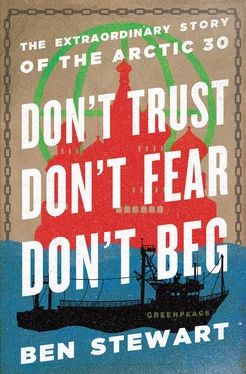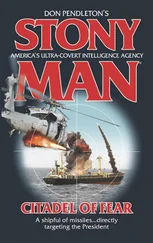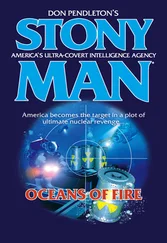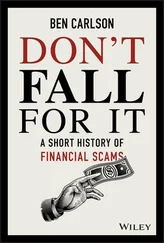Dzhugashvili had a reputation for thinking with his fists. One evening they stumbled into a pub frequented by London’s notoriously belligerent dock workers and soon the Georgian was embroiled in an argument with the locals. It soon escalated, Dzhugashvili was surrounded, and although the details of that moment are lost to history, one can imagine his life flashing before his eyes. That was when Litvinov waded in and dragged his hot-tempered friend from the pub. They escaped down a side street. [10] Simon Sebag Montefiore, Young Stalin (London, 2007), pp. 182–3.
Maxim Litvinov was Dima’s great-grandfather. Josef Dzhugashvili survived that night to become one of history’s greatest mass murderers. He is known to the world as Stalin.
Dzhugashvili was largely unknown to his comrades in London, but Litvinov was already a notorious revolutionary. He’d been arrested by the Okhrana – the tsar’s secret police – and jailed in Lukyanovskaya prison, from where he escaped, taking ten inmates with him. [11] Lee B. Croft, Ashleigh Albrecht, Emily Cluff, Eric Resmer, The Ambassadors: U.S.-to-Russia/Russia-to-U.S. (Phoenix, 2010), p. 150.
He slipped over one border after another until he reached Switzerland. Later he became an arms dealer for the Bolshevik wing of the party, procuring rifles and smuggling them into Russia through Finland. [12] Helen Rappaport, Conspirator: Lenin in Exile, The Making of a Revolutionary (London, 2010), pp. 136–7.
A year after dragging his friend from that London pub, Litvinov was arrested [13] http://query.nytimes.com/gst/abstract.html?res=9B0CEFD9173EE233A25751C0A9649C946997D6CF
in France carrying a pocketful of 500-rouble notes that had been stolen in a notorious bank robbery masterminded by Stalin. [14] Croft et al., p. 150.
He was deported, returned to London and married an English woman, Ivy Low. Litvinov was still in England when Lenin and Trotsky seized power in the Bolshevik Revolution of 1917. He was arrested by the London government in 1918 but freed in exchange for a British diplomat who was accused of complicity in an assassination attempt on Lenin. [15] http://www.britannica.com/EBchecked/topic/344401/Maksim-Maksimovich-Litvinov
Litvinov returned to Russia and began a career as a senior Soviet diplomat.
In 1930 his old friend Stalin – by now supreme leader of the Soviet Union – appointed him Commissar for Foreign Affairs. Litvinov – real name Meir Wallach-Finkelstein [16] http://books.google.co.uk/books/about/Maxim_Litvinov.html?id=wCEhkgAACAAJ&redir_esc=y
– worked to normalise relations with Britain and France, and persuaded America’s President Roosevelt to officially recognise the Communist government in Moscow. And all the time he was a senior figure in a regime that was purging, starving and shooting millions of its own people.
In April 1933 Litvinov’s face graced the front cover of Time magazine. [17] http://content.time.com/time/covers/0,16641,19330424,00.html
The Nazi government in Germany derided his Jewish ancestry, with Berlin radio referring to him contemptuously as ‘Finkelstein-Litvinov’. [18] Jeffrey Herf, The Jewish Enemy: Nazi Propaganda During World War II and the Holocaust (Harvard, 2006), p 97.
When Stalin resolved to sign a pact with Hitler to invade and divide Poland, Litvinov’s Jewish roots presented an awkward impediment. His office was surrounded by troops from the NKVD [19] Aleksandr Moiseevich Nekrich, Adam Bruno Alam, Gregory L. Freeze, Pariahs, Partners, Predators: German–Soviet Relations, 1922–1941 (Columbia, 1997), p. 109.
– the secret police organisation that succeeded the tsar’s Okhrana . A delegation led by Vyacheslav Molotov told Litvinov he was fired. [20] Nekrich et al., p. 109.
Four months later Molotov signed the pact with Hitler, Poland was invaded and the world went to war. Hitler later said, ‘Litvinov’s replacement was decisive.’ [21] Roderick Stackelberg, Sally A. Winkle (eds), The Nazi Sourcebook: An Anthology of Texts (London, 2002), p. 245.
Asked why he had been replaced by Molotov, Litvinov said, ‘Do you really think that I was the right person to sign a treaty with Hitler?’ [22] Victor Israelyan, On the Battlefields of the Cold War: A Soviet Ambassador’s Confession (Pennsylvania, 2003), p. 10.
When, two years later, Germany turned on the Soviet Union, Litvinov was rehabilitated and appointed ambassador to the United States. On New Year’s Eve 1951 he died of a heart attack, aged seventy-five. [23] Jonathan Haslam, Russia’s Cold War: From the October Revolution to the Fall of the Wall (Yale, 2011), p. 75.
Molotov later said Litvinov was ‘utterly hostile to us… He deserved the highest measure of punishment at the hands of the proletariat. Every punishment.’ He said Dima’s great-grandfather ‘remained among the living only by chance’. [24] V. M. Molotov and Feliz Chue, Molotov Remembers: Inside Kremlin Politics (Chicago, 1993), pp. 68–9.
Decades after his death, Litvinov’s daughter claimed Stalin once told Maxim he was only spared because, ‘I haven’t forgotten that time in London.’ [25] Young Stalin , p. 183.
Lev Kopelev was also a Bolshevik. In the 1930s he worked as a journalist, witnessing the horrors of the Ukrainian famine caused by the forced grain requisitioning ordered by the government of which Maxim Litvinov was a part. [26] http://www.nytimes.com/1997/06/20/world/lev-kopelev-soviet-writer-in-prison-10-years-dies-at-85.html
When the Germans invaded in 1941, Kopelev volunteered for the Red Army, serving as a propaganda officer. [27] http://www.nytimes.com/1997/06/20/world/lev-kopelev-soviet-writer-in-prison-10-years-dies-at-85.html
He was one of millions of Soviet soldiers who rolled into Germany near the war’s end. And it was here, in East Prussia, that he witnessed atrocities committed by his nation against the defeated German civilian population.
Kopelev was deeply troubled and felt unable to remain silent. He spoke out publicly, denouncing the conduct of the Soviet armies in Germany. He was promptly arrested [28] http://www.nytimes.com/1997/06/20/world/lev-kopelev-soviet-writer-in-prison-10-years-dies-at-85.html
and sentenced to ten years’ imprisonment for the ‘propagation of bourgeois humanism, sympathy with the enemy and undermining the troops’ political–ethical morale.’ [29] http://ausstellung-gulag.org/en/476/
In the gulag he met and befriended Aleksandr Solzhenitsyn. When Solzhenitsyn came to write his novel The First Circle, he based the character Rubin on Kopelev. [30] http://www.nytimes.com/1997/06/20/world/lev-kopelev-soviet-writer-in-prison-10-years-dies-at-85.html
When Kopelev was released, he approached Russia’s leading literary journal and urged it to publish Solzhenitsyn’s One Day in the Life of Ivan Denisovich . [31] Stephen F. Cohen, The Victims Return: Survivors of the Gulag After Stalin (New York, 2011), p. 16.
It was a seminal moment in the Soviet dissident movement.
Lev Kopelev was Dima’s grandfather.
In 1968 Lev was expelled from the Communist Party [32] http://www.independent.co.uk/news/people/obituary-levkopelev-1256877.html
for lending his voice to protests against the persecution of other dissidents. He also spoke out against the Soviet invasion of Czechoslovakia. [33] http://ausstellung-gulag.org/en/476/
It was a cause for which Pavel Litvinov – Kopelev’s son-in-law, Maxim’s grandson – was also prepared to pay a heavy price.
Читать дальше












